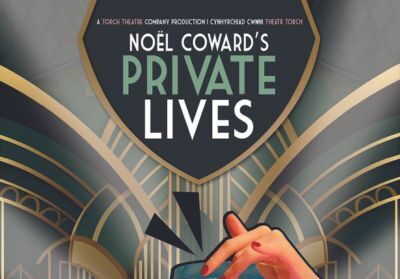Rhys Edwards reviews the new one-woman show from Lisa Zahra, Baba Joon, an exploration of the mixed-heritage experience in Wales.
Baba Joon covers a lot of ground. In part, it is the story of a young man from Iran finding a new life in Swansea in the 1970s, but it also recalls the experiences of his daughter – Lisa Zahra – growing up in this city in the 1990s. Alongside these dual narratives, we are additionally guided by a version of Lisa in modern day, as she embarks on a journey to embrace her mixed heritage.
All of this is punctuated by sharp humour, authentic and relatable reflections on familial relationships – and a fair bit of 90’s house music thrown in too.
Lisa Zahra commands the stage, performing various incarnations of herself and family with ease. You warm to her instantly, with plenty of charisma and wit on show, but predominantly it’s the way that she exudes affection for her father that really invites you into her world.
Their complicated relationship is at the core of Baba Joon. It comes across immediately genuine because of course, Lisa’s performance is based in truth – this is her lived experience – but there is still an extraordinary quality in her portrayal that seems to guarantee that whenever she speaks about her father, no matter how minor or significant the reference, your heart melts to mush.
Director Izzy Rabey should also be commended for setting a swift pace, having energised this one-person play with creative blocking, ensuring that it never becomes stagnant. The set is stripped back, making it easier to switch between locations and time periods – aided by a small 90s-style cathode ray tube telly in the corner, informing the audience when they’re in 1970s’ Swansea and 2020s’ Tehran. A nice touch.
Dance is also used effectively throughout, with movement direction provided by Gemma Prangle. There is one particularly striking sequence, in which a young Lisa dances to traditional Iranian music, later transitioning into adulthood with a remix of ‘Sweet Dreams are Made of This’. Partway through, there is a cacophony of different sounds which are expertly embodied through Lisa’s movements with competing sets of choreography. As the song ends, we see Lisa exhausted, shaken by the toll of this daily struggle with her identity.
Her struggle, it emerges, is defined by shame. She fears not being Iranian enough in her father’s eyes and wrestles with his perception that she is straying away from her heritage. This, shown in contrast to how her Welsh identity is also scrutinised by others, with a pretty heart-wrenching revelation that she once used Rimmel makeup to make her skin appear whiter so that school would be easier on her.
This is ultimately a story about someone relinquishing themselves from shame that they should never have been made to feel. All the hurt that Lisa once felt for not being considered ‘Welsh enough’ or the guilt for not being ‘authentically Iranian’, is rightly rejected in favour of her finding and celebrating her true self within this mix. This is poignantly demonstrated when her longing to visit Iran is disrupted by echoing cries of protest, a moment where she discovers exactly where she stands and finally embraces that middle ground with pride.
Baba Joon is thought-provoking and essential theatre. Its captivating performance from Lisa Zahra explores an underrepresented but universally relatable experience and it is certain to leave a lasting impact on its audience long after the curtain call.












